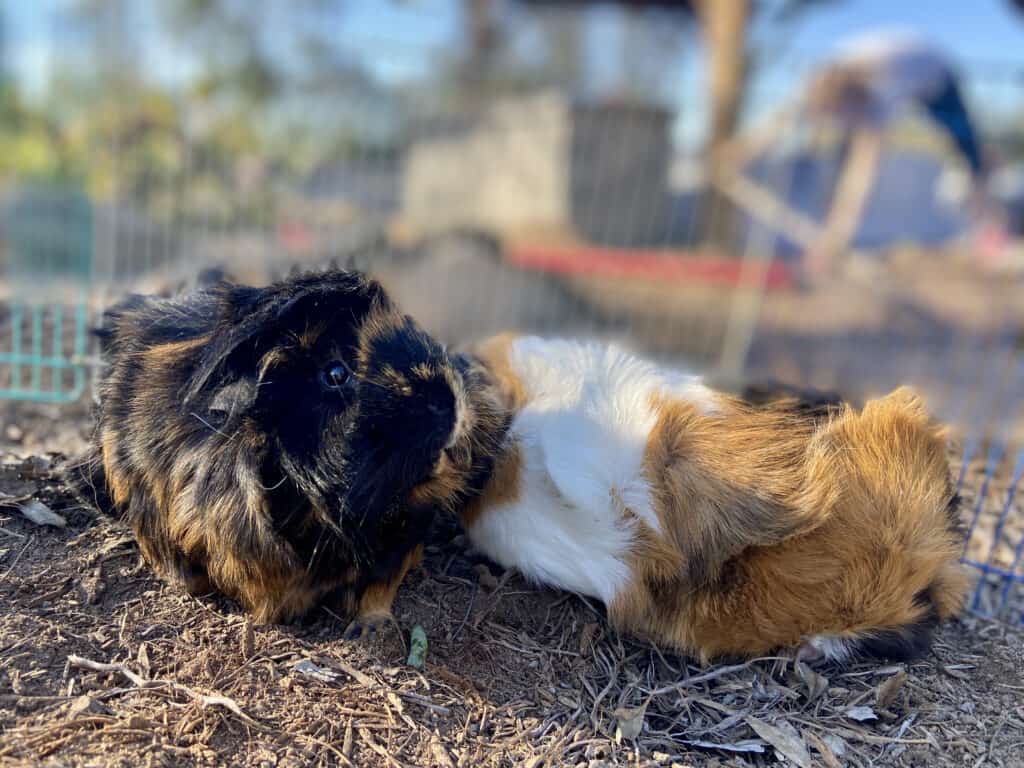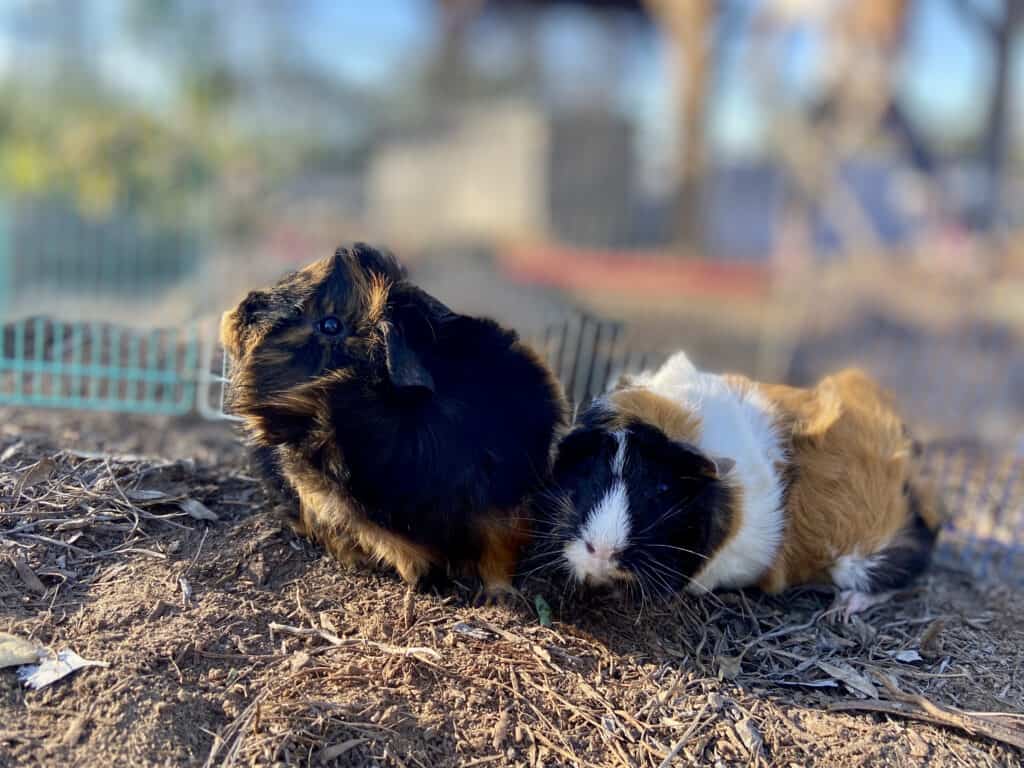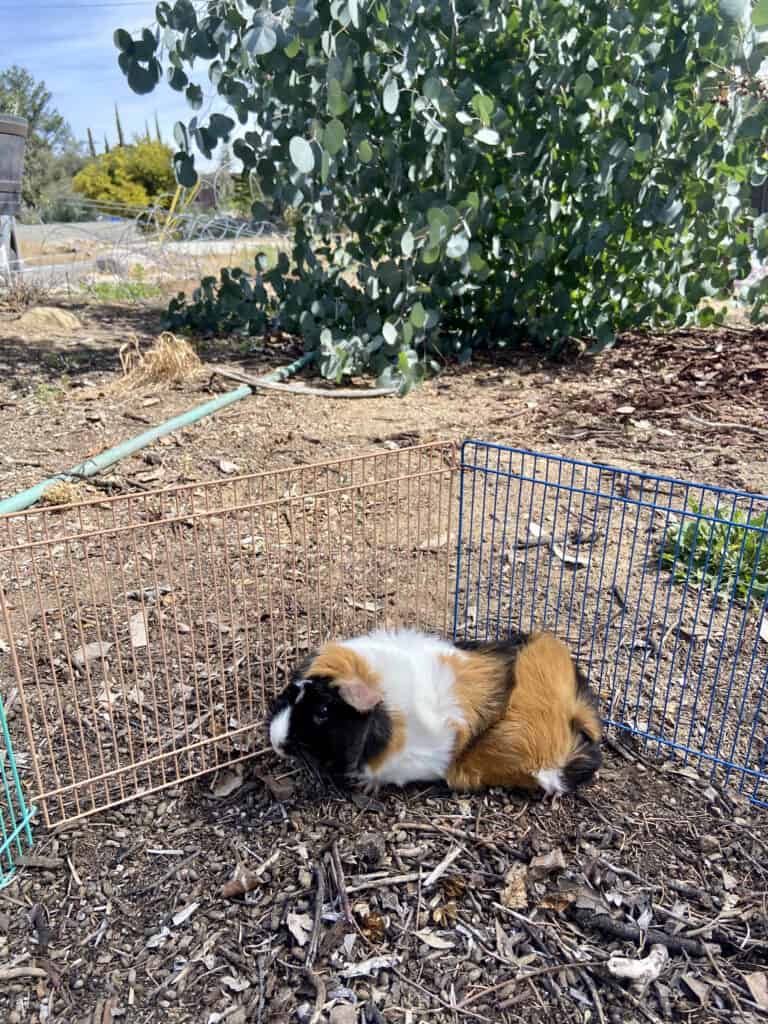As an Amazon Associate we earn from qualifying purchases.
Guinea pigs are friendly little creatures that are very entertaining, low-maintenance, and generally very healthy animals. Consequently, they often make a great first pet for children.
Of course, if you have landed on this article, you probably already own a guinea pig. You must also have a specific question in mind regarding its diet, i.e., can guinea pigs eat raisins?
Can Guinea Pigs Eat Raisins?
The answer is yes, guinea pigs can eat raisins. Guinea pigs can have them occasionally and in limited quantity. An ideal serving size is one or two pieces of raisins in a week.

Guinea pigs are avid foodies, and they love to eat anything and everything. You may often find them nibbling to check if something is food (guinea pigs also nibble to show affection) or chewing away on something or the other. Since raisins are sweet, soft, and chewy, they do not make an appropriate snack for the guinea pigs.
Health Risks of Eating Raisins for Guinea Pigs
As we mentioned above, the occasional raisins as a treat are not harmful to your guinea pigs. However, there are numerous risks to keep in mind when feeding raisins to your guinea:
High In Sugar
Raisins have a very high sugar content. At 100 grams serving of raisins has around 59 grams of sugar. This high sugar quantity can cause rapid weight gain in your guinea pigs.
Moreover, it can also lead to other health problems such as diabetes. Fruits like guava can also contains high in sugar and can affect the guinea pig’s health.
Digestion Problems
Guinea pigs have a hard time digesting sugar. Excessive sugar in their diet can result in stomach pains, diarrhea, gasses, and cramps.
Dental Issues
Another glaring problem of consuming too many raisins is that they are bad for the teeth. Raisins are sweet and sticky, which is the perfect recipe for causing tooth decay and gum disease in your cavy.
Urinary Tract Infection
Small amounts of calcium are essential for the development of healthy teeth and strong bones. However, calcium does not offer an adult guinea pig too many benefits. Instead, excess calcium from raisins can cause bladder and kidney stones and urinary infections leading to blood in the urine or painful urination.
Vegetables like celery also has a high amount of sodium concentration which can also cause urinary complications.

Choking
Raisins can also pose a severe choking hazard for your guinea pig. It may not be high on the list of potential pitfalls of feeding raisins to your guinea, but it is still worth a mention and something to consider.
Health Benefits of Eating Raisins for Guinea Pigs
Do you love to see the pure joy emanating from your adorable little pet when you feed it raisins? You would be happy to know that raisins also have a few health benefits and nutritional values. Thus, you can give them the occasional treat guilt-free. Let us dive into it:
Reduced Chances Of Scurvy
Raisins have the essential amount of vitamin C, which is the one vitamin that is most crucial for guinea pigs. This is because guineas, like humans, cannot make their own vitamin C and need to rely on external dietary sources.
Vitamin C helps protect your cavy against scurvy, which can be a fatal disease for them and is quite common in captive ones. It is also suitable for strengthening their immune system.
Feeding fruits like raspberries to your guinea pigs can also help against scurvy. Mango fruits are also helpful to feed on your guinea pigs.
Balanced Fiber Content
Raisins also contain a reasonable amount of fiber, which is a crucial part of your guinea pig’s diet. The moderate fiber content helps them regulate bowel movement and keep their digestive system in perfect working condition.
Natural Diet of Guinea Pigs
Following is an ideal, balanced diet for a guinea pig:
Hay
Large quantities of Timothy hay or other low-calcium hay are good for your guinea pigs. This kind of fibrous grass contains the essential fibers for proper digestion. Moreover, chewing on hay helps trim down your guinea’s teeth, which never stop growing.
Pellets
Guinea pig pellets are commercially formulated to provide the necessary nutrients and mandatory dose of Vitamin C.

Vegetables
Fresh, organic leafy greens and colored vegetables provide the vital vitamins and minerals beneficial to your cavy’s overall health. These vegetables include romaine lettuce, spinach, carrots, peas, tomatoes, bell peppers, artichokes, broccoli spears, and other dark green veggies.
Related Questions
What Foods Guinea Pigs Cannot Eat?
Make sure that you do not include the following in your guinea pigs diet: nuts; seeds; grains; dried beans, corn, and peas; buttercups; garden shrubs; daffodils; lilies; nightshade; onion grass; sweet peas; oak; avocado; onions; potato tops; mushrooms; rhubarb leaves; and human foods such as processed and pickled food, cooked food, and meat.
Conclusion
To conclude, raisins are not harmful for your guinea pig; subject to the condition you give raisins to your pet in specific quantity. Therefore, you can feed your furry little guy a couple of raisins once in one or two weeks without any serious damage to their health. Too much of the sweet, chewy snack can cause weight gain, dental decay, and digestive issues.